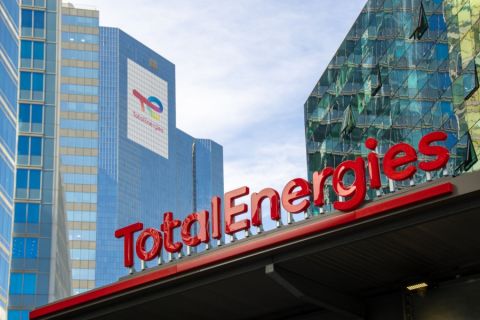This spring, we've seen some interesting things bloom in the energy garden. There is the disconnect between upstream fundamentals, wonderful company performance and lackadaisical investor sentiment-even as other industries perform woefully. Regulators and politicians are trying to emerge triumphant by solving the power problem the wrong way, by erecting barriers to reinvestment. Consumers decry prices at the pump or in their utility bill, yet oppose expanded U.S. drilling. During the annual Howard Weil energy conference in New Orleans, energy stocks bled red with the late-March sell-off, even though energy executives presented the strongest stories they have in years. Investors barely stifled their yawns, either being overweighted in energy stocks already, or being in a profit-taking mood. None of the investors trusted lofty commodity prices. None believed U.S. oil and gas production could grow any time soon. Many wondered how the economic slowdown will affect the industry through December and beyond. The upshot? Investors fear declining cash flows for the E&P companies as this year rolls on. Indeed, the quarter-to-quarter comparisons may begin to fade a bit now as oil prices moderate. Have these people forgotten to look at natural gas demand and storage numbers? Meanwhile, the rig count just topped 1,200-the highest level in 10 years, surpassing the boom of 1996. Global Marine reactivated its last idle jackup rig in early April, marking the first time since July 1998 that it is operating at 100% utilization. Most other contractors, whether onshore or offshore, report similar good news. Dayrates are responding as you would expect. Exxon Mobil plans to do its part offshore. While in New Orleans, I attended a portion of the offshore federal lease sale conducted by the Minerals Management Service. Twice, Exxon Mobil elicited gasps from the crowded room. The first time, it was the sole bidder on a deepwater block in Mississippi Canyon, bidding $16 million. And on another block in Mississippi Canyon, the company left so much money on the table that the MMS spokesman who opened the bids laughed and said, "Thank you! We surely didn't expect to see this. This makes our budget for the year!" The low bid on that block was under $1 million; the four other bids were around $5 million-and Exxon Mobil won with its astounding bid of $26 million! What caused that disparity in value? A week later, I visited Midland, Texas, where start-ups continue to sprout to take advantage of the fact that majors are exiting, downsizing or restructuring in the Permian Basin. The acquire-and-exploit trend is alive and well. However, the new Oxy Permian, now the largest oil producer in Texas, has big plans and doesn't intend to rest on its laurels. We'll have profiles on these in upcoming issues. Sadly, a couple of weeds have sprouted in our garden. A federal judge in Alabama issued a one-year injunction against OPEC as the result of an antitrust lawsuit brought by some independents against that organization, claiming price fixing and production manipulation. And a second weed: a Floridian contacted me to ask for help. Seems he read a drilling prospectus, then sent a check for $21,000 last August. Since then he has heard nothing from the energy-company sponsor. His repeated telephone calls to the number listed on the cover go unanswered. Soon, we shall see a new bloom, as the Bush Administration likely will have released its proposal for an energy policy. Whatever its final color and scent, it will have had lots of fertile advice. Every analyst, trade and consumer group, think-tank and consultancy has weighed in. We do take comfort in knowing that respected experts such as geologist and author Michel Halbouty, Enron Corp. chairman Kenneth Lay, Daniel Yergin of Cambridge Energy Research Associates, Matthew Simmons of Simmons & Co. International, and members of the National Petroleum Council have had their say. We hope the policy weighs energy needs versus environmental protection. To make a difference, it must address two things: building up a variety of supply sources for oil, gas and power; and reducing demand through conservation and alternative technologies. Regulation FD (Fair Disclosure) keeps gaining notoriety. At Goldman Sachs' recent annual meeting, chairman Henry Paulson said Reg FD adds to stock-market turmoil and generally has had a negative effect. And an industry survey indicates analysts think the quality of information they get from companies now has declined since the rule took effect. What do you think? Attend our investor-relations conference in Houston May 23, where notable IR officers and analysts will debate this and many other IR matters. And, remember that to reap new capital, you must prepare the soil and sow the right seeds. That's why it makes sense to attend our third annual Executive Forum on Private Capital, June 5 in Houston, cosponsored by Cosco Capital Management. Learn what is new, what has changed and how this type of capital can help you grow. To register, contact us at 713-993-9320.
Recommended Reading
EQT Sees Clear Path to $5B in Potential Divestments
2024-04-24 - EQT Corp. executives said that an April deal with Equinor has been a catalyst for talks with potential buyers.
Matador Hoards Dry Powder for Potential M&A, Adds Delaware Acreage
2024-04-24 - Delaware-focused E&P Matador Resources is growing oil production, expanding midstream capacity, keeping debt low and hunting for M&A opportunities.
TotalEnergies, Vanguard Renewables Form RNG JV in US
2024-04-24 - Total Energies and Vanguard Renewable’s equally owned joint venture initially aims to advance 10 RNG projects into construction during the next 12 months.
Ithaca Energy to Buy Eni's UK Assets in $938MM North Sea Deal
2024-04-23 - Eni, one of Italy's biggest energy companies, will transfer its U.K. business in exchange for 38.5% of Ithaca's share capital, while the existing Ithaca Energy shareholders will own the remaining 61.5% of the combined group.
EIG’s MidOcean Closes Purchase of 20% Stake in Peru LNG
2024-04-23 - MidOcean Energy’s deal for SK Earthon’s Peru LNG follows a March deal to purchase Tokyo Gas’ LNG interests in Australia.




